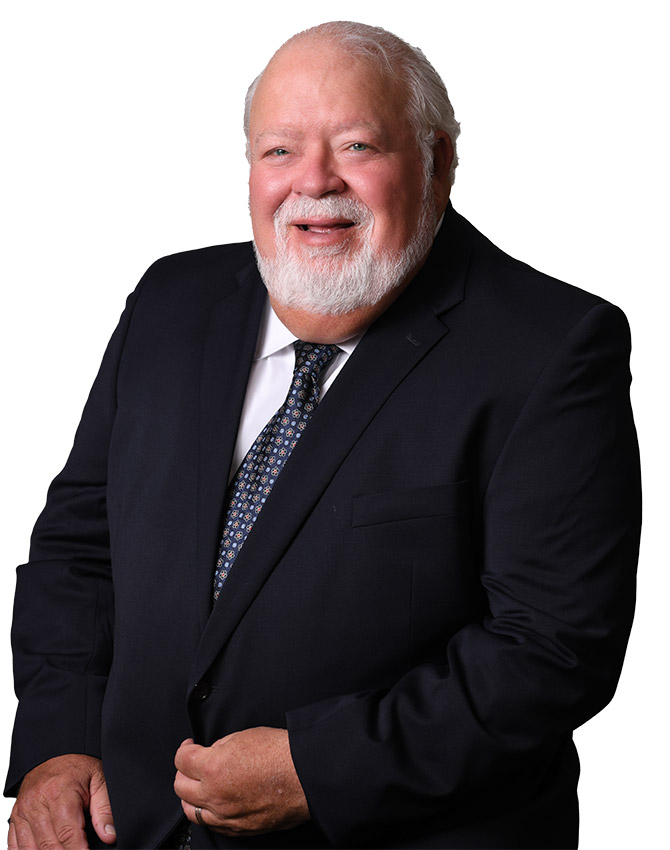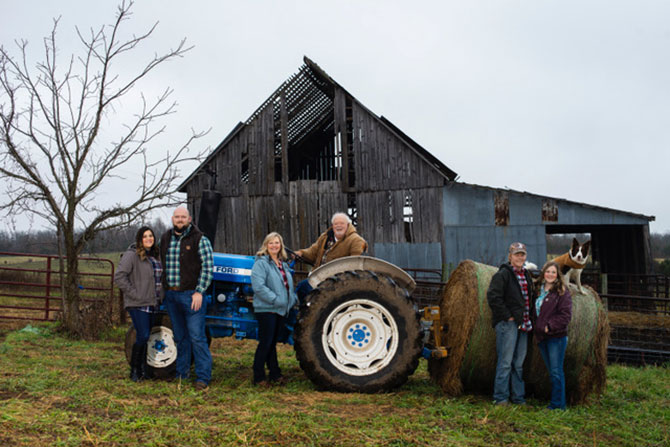
Just outside the Ozarks, in the quaint town of Lebanon, Missouri, you will find the Light family farm, which was established in 1917. That is where Kim Light grew up, raising cattle and hogs and learning the value of a hard day’s work. Briefly leaving Lebanon to attend college, Kim earned an undergraduate degree in agricultural finance from Missouri State University.
After Kim graduated, he intended to immediately go on to graduate school. But life had other plans for him. His mother was friends with the head of operations at a local bank. They found out Kim was back in town and asked her what he was doing, saying, “We would love for him to come to work for us.” So, Kim put his graduate school plans on hold and went to work at Central Bank. “I always figured I would end up in agricultural sales. I knew absolutely nothing about banking when I went to work at the bank, and I had no aspirations of making a career out of it,” Kim said.
“I was hired as an ag loan officer. That was in 1980 when the prime rate was at or over 20%, and many farmers were having financial hardships.” It was a tough time to be starting out as an ag banker. Kim was working out of the Conway branch and was able to build a good customer base. “It helped that I grew up in a neighboring community and knew many of the farmers,” Kim said. “They grabbed a hold of the kid who didn’t know anything about banking at all and took me under their wings.” Kim spent seven years at the Conway branch. “It was one of the biggest highlights of my banking career,” Kim recalled. In 1987, he moved to the Lebanon location, the home office of Central Bank, and continued to move up in the company, eventually becoming president and then CEO.
In 2011, Kim had the opportunity to move over to Heritage Bank of the Ozarks. He was hired as the bank president and eventually held the position of CEO as well. Since 2011, the bank has grown from about $40 million in assets to $360 million in assets. “Being the only locally managed bank in Lebanon has been a huge competitive advantage for us,” Kim said. As part of the bank’s succession plan, Kim relinquished the president’s title to a young, up-and-coming officer this past spring, but he is still actively leading as the CEO.
As Kim looks back over his career, there are certain experiences that stand out as a reminder that his choice to be a banker was a good one.
“One of the first ag customers I ever had is still my customer today — he is 80 years old now. He, his children, and his grandchildren have all been my customers. That is three generations of customers from one family. He and I are friends and although he is my customer, he has been my ag mentor as well. He knows more about farming than I could ever dream,” Kim said. “We got together a couple of weeks ago and rode around in a side-by-side out on my farm and reminisced on the past. It was one of the coolest experiences that I have ever had.” Kim continued, “My daughter, Ashton, who works at the bank with me, was along on the ride, and she just took it all in. The wisdom he shared with us was priceless.”
Kim shared another experience that happened a couple of years ago. “I was sitting in a restaurant in Lebanon when a couple walked up to the table, and frankly, I did not recognize them.
The lady said, ‘I just want to thank you for taking a chance on us. Years ago, you made us our first home loan. We should not have been able to get that loan, but you took a chance on us,’” Kim recalled. “I will never forget that. It made me tear up. It was a small gesture, but it brought me great satisfaction.”
When asked about his mentors, three in particular stand out to Kim. “The first would be Dr. J.N. Smith. He was my college advisor and a tough old guy. Although he challenged me, he was a positive influence,” Kim recalled. “He stopped by to check in on me six or seven years into my banking career. We talked for a while, and then he said, ‘Light, I’m proud of you. You did OK.’ That meant a lot to me. I don’t think he ever called me by my first name. I’m not sure he knew it. LOL.”
The second mentor is Bob Bailey, who is 92 years young. Bob gave Kim his first job at a small independent hardware store. Bob preached and preached the importance of taking care of the customer, and would often say, “If you take care of the customers, they’re not gonna forget you.” That advice has stuck with Kim throughout his career. Bob was a small business owner and knew what it took to compete with the Walmart’s of the world.
George Curry, CEO and chairman of Central Bank, was a very strong banking mentor to Kim. “When I went to work there — he took a chance on me, coming out of college when I didn’t know anything about banking — he stuck me in a branch with a bunch of farmers that were having financial problems, and that could have been a real disaster. But George believed in me, and it all turned out really well,” Kim said.
As Kim heads towards retirement, he hopes the next generation of bankers, those who follow in his footsteps, remember the following advice:
“The most critical thing is to take care of the customer. There is no such thing as an unimportant customer or an unimportant problem. So, return those phone calls, make appointments and give every customer the attention that they deserve.
“Develop a network of banking colleagues. People that you can call and say, ‘How would you handle this?’ I have a few very valued banking colleagues that I get together with and just brainstorm. We may compete but we are friends, and we are all facing the same issues. We try to get together and have lunch every so often and pick each other’s brains. It is hugely valuable to have these resources.
“Explore every continuing education opportunity. Our bank is very supportive of employees attending seminars and webinars. We have even sent some employees to the Graduate School of Banking. With the changing banking environment, it is critically important that you stay on top of your continuing education. In short, never stop learning!”
The community of Lebanon is near and dear to Kim’s heart. He is an active member of the Rotary Club of Lebanon. The club raises money to help support everything from local youth programs to nutrition programs and so much more.
Under Kim’s leadership, the Heritage Bank of the Ozarks supports the Missouri Main Steet Connection, helping to revitalize downtown Lebanon; the Lebanon Area Foundation/Community Cares, providing assistance for the less fortunate; and the Association of the United States Army (AUSA), which is a military support group for the families of soldiers that are stationed at Fort Leonard Wood. Kim spent 21 years on the Lebanon School Board, including two stints as the board president.
Membership in MIBA is equally as important and has helped Kim and the bank employees in many ways over the years. “The educational opportunities, webinars, seminars, and conferences are hugely beneficial. The regulatory and government relations that MIBA provides for community banks, making sure our voices are heard in Washington, D.C., and Jefferson City is critical. But again, the biggest benefit is having that network of fellow bankers who you get to know and become friends with. People you can reach out to and ask questions should the need arise.
Kim and his beautiful wife of 41 years, Kathy, still live on the Light family farm. Over the years, surrounding properties have been purchased, increasing the size and making it a perfect place for the entire family. His two children and their families each have houses on the farm as well: son Brett and his wife Nickie, as well as daughter Ashton and her husband Zach, who just had their first baby this past March. “We all love and appreciate the lifestyle that the farm provides for us,” reflected Kim.
Looking back on his career, Kim said, “I cannot imagine doing anything differently, I have no regrets. My banking career has been so rewarding. Like the lady I mentioned who spoke to me at the restaurant, experiences like that are priceless. Even though there have been hard times and challenges over the years, I have always strived to help people and to help the community. At the end of the day, it’s all about the people you serve and the people that you work with.”








